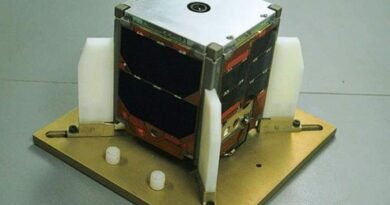World’s First Room-Temperature Photonic Quantum Computer Unveiled: A Scalable Breakthrough

Scientists have unveiled the world’s first modular quantum computer capable of operating at room temperature, a groundbreaking leap in quantum technology. This innovative system, named Aurora, harnesses photons—light particles—to process data, enabling a scalable, networked quantum computing environment without the need for extreme cooling.
Developed by Xanadu, Aurora stands out as the first photonic quantum computer designed to scale efficiently. It connects multiple modules via fiber optic cables, addressing key challenges in quantum computing, such as scalability, fault tolerance, and error correction. According to Xanadu representatives, this breakthrough, detailed in a January 22 study published in Nature, paves the way for practical quantum data centers with improved reliability and reduced error rates.
Unlike traditional quantum computers that rely on superconducting qubits and microwave signals, Aurora uses light-based photonic qubits. Superconducting qubits generate heat that can harm hardware and require near-absolute-zero temperatures, complicating access and maintenance. By leveraging photonic chips and fiber optics—the backbone of global networking—Aurora offers a scalable, heat-free alternative. Christian Weedbrook, Xanadu’s founder and CEO, emphasized, “The industry’s biggest hurdles are enhancing quantum computer performance through error correction and achieving scalability via networking.”
Aurora’s modular design breaks the system into smaller, interconnected units, potentially simplifying quantum error correction. “Fault tolerance remains a critical barrier—correcting quantum states faster than errors emerge is essential for practical applications,” explained Darran Milne, a quantum information theory expert and CEO of VividQ, who was not involved in the project. He noted that Xanadu’s approach of dividing the system into manageable parts could reduce errors, though its effectiveness is still under scrutiny.
Built on Xanadu’s existing technologies, including the X8 quantum hardware and Borealis single-system computer, Aurora integrates 35 photonic chips linked by 8 miles (13 kilometers) of fiber optic cables. Researchers claim this framework could scale to thousands of server racks and millions of qubits, revolutionizing quantum computing applications.
This photonic quantum computer could transform industries by simulating complex molecules, accelerating pharmaceutical research, and shortening drug trial timelines. Additionally, it may enable quantum cryptography, delivering ultra-secure, encrypted communications for a digital future.








